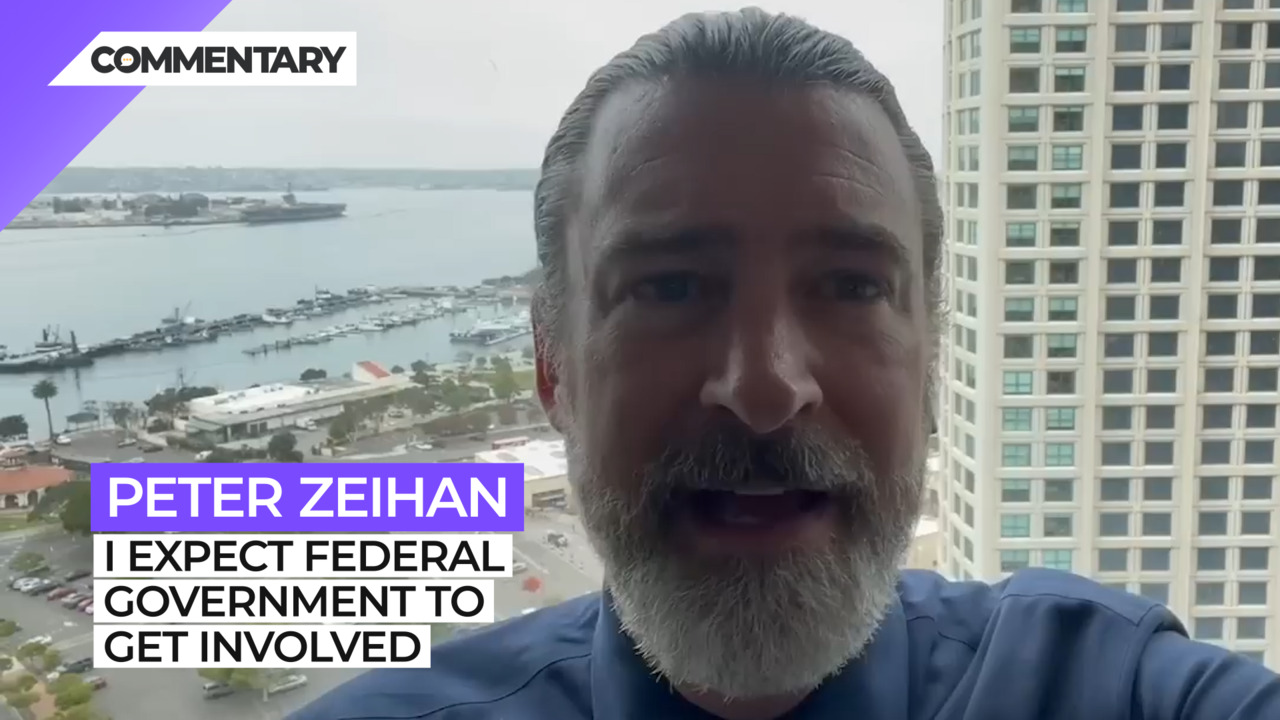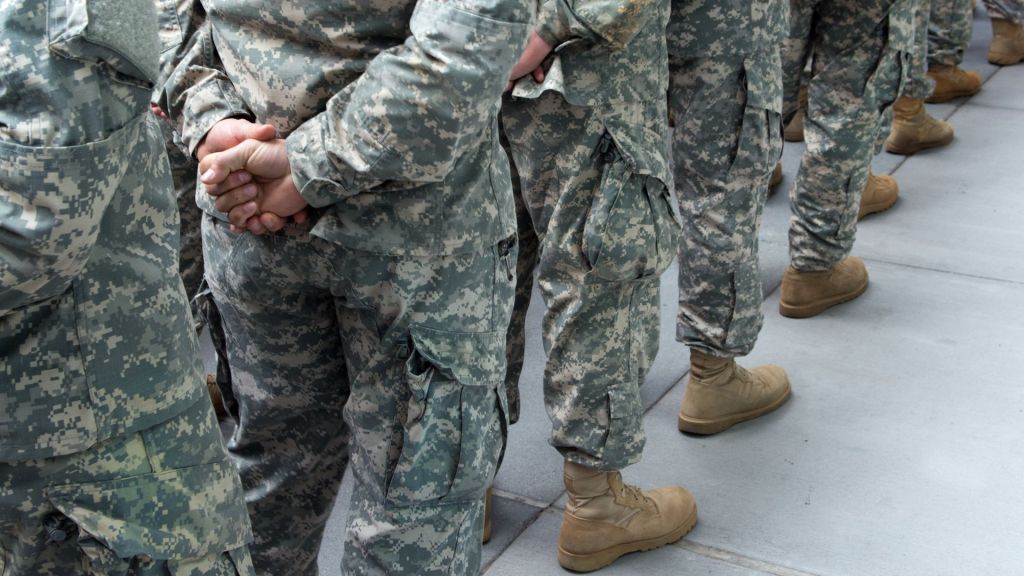
Commentary
-
Our commentary partners will help you reach your own conclusions on complex topics.
Hey everybody, Peter zine here coming to you from San Diego. Today I wanted to talk about the rail dispute that is about to generate a strike in the United States. Rail, the United States is used for any sort of large type of bulk transport, whether it’s fuel or food or containers that have been moved from the ports, specifically in things that are transferred from either the Pacific Coast inward for and consumption, or things like fertilizer that come from the Gulf Coast up to the Midwest. It’s an important part of the system. It’s the second largest transport capacity that United States has in terms of tonnage miles. And it matters for two reasons. First, my perennial one man war against the Jones Act, we used to ship a lot of things be a water. But with the Jones Act, we now can only ship items between two American ports that are American on vessels that are American owned, operated, captained and crude. And that has led us to reduce the use of the waterways by in excess of 99%, almost condemning our maritime transport system, which is the best natural network in the world to irrelevance. As long as that is the case rail is the only way that can move things in size. And if we had something like the Jones Act for rail, the rail system would shut down if we had something like the Jones Act for transport no more Toyota, no more Mercedes or BMW or Fujitsu or any of the others. So it gives you an idea of how distortionary it is. Second, it’s political. If we were under a different timeframe, say Obama earlier, we would have had a very different resolution here, because we probably would have had some strike busters already been ordered by the federal government, because the rail system is so critical to the American Economic functioning. However, we’re not going to see that if anything, we’re going to see this administration siding with the unions. And the reason is, is that we are at a turning of the political system. Now every generation or to the factions that make up the political parties in the United States move around. And in many ways, this is not a bug. It’s a feature of the system, we have a two party system, because that’s what our constitution more or less requires dictates. We have a first pass the post single member district system, which is a fancy way of saying that when you go to vote, you vote for a specific person who will represent a specific geography, you’re not voting for a party, you’re voting for an individual. And that makes American political parties relatively weak compared to say how they are in Europe or Asia. And that means that we get factions of these independent party candidates within the umbrella of the big tents of the Democrats and the Republicans. And as technology evolves, as the economy shifts, as demography changes, those factions rise and fall in power. And sometimes once a generation or two, the factions lose power or gain power to a scale that disrupts the entire system. This has happened to us six times before. The last big time it shifted in the 1930s. All the African Americans were Republicans and all of big business were Democrats. And obviously, that’s not the world we’re in today. Well, in the last 30 years, we’ve had the rise of ultra globalization, and now it’s collapsed the rise of China and now it’s collapsed, the rise of information technology, the Green Revolution, all of these things have happened in a relatively short period of time, coinciding with the collapse of the Soviet Union and other Return of the Russians. Of course, we’re going to manage our political system differently. And so the factions are once again in motion. And the faction that is currently in the middle of a tug of war between the Democrats and the Republicans is organized labor. So any issue that the unions don’t like is not something that any one is going to raise at the national level, because they feel they need that faction. That’s a lot of votes. And so whether it’s union issues with the Jones Act, whether it’s union issues with the railyards, and whether it’s issues of immigration, the unions are against the changes in those systems, and so they are going to resist and as long as that is going on, we are not going to see a resolution. So with the railyards, I do expect the federal government to get involved, but on the side of the unions, and that has nothing to do with the fact that Biden has generally been pro union. It’s just because that’s where the pullet politics are falling on both sides. If anything, we’re actually seeing the Republican Party right now. arguing for the unions, which is a weird place to be in but again, everything is in motion. All right, that hopefully explains it. That’s it. Whoa, seagull. That’s it for me. Until next time.
-
Hurricane Helene hits US coast, Appalachia and beyond
Hurricane Helene hit Florida and Georgia overnight between Sept. 26 and 27 as a Category 4 hurricane, and accompanying storms will continue reaching deeper into the continental United States today. Dangerous flash flooding from the hurricane, known as storm surge, was some of the worst flooding that the Tampa Bay area has ever seen, and… -
Israel holds upper hand against Lebanon, Hezbollah and Iran
On Wednesday, Sept. 25, Hezbollah launched a ballistic missile at Tel Aviv in retaliation for Israel’s explosive pager attack that blew up devices across Lebanon. Although Israel’s defense systems intercepted the surface-to-surface missile, the attempted strike on Tel Aviv marked a significant escalation by Hezbollah. Since the siege on Gaza began, shortly after the Oct. 7, 2023,… -
The Sinaloa Cartel civil war
Fears of a civil war within the Sinaloa Cartel are growing as violence between competing factions within the cartel continues. The Mexican Army has dispatched around 600 elite troops to Sinaloa to help quell those fears, in addition to roughly 2,200 regular soldiers and National Guard. Watch the above video as Straight Arrow News contributor… -
New Ukrainian weapons hit Russia where it hurts
Ukrainian drones struck a major Russian ammunition depot, triggering a massive explosion that was captured on camera. According to the Ukrainian military, 2,000 tons of munitions had arrived at the depot before the attack. Over the past two years, Ukraine has significantly increased its domestic drone production, allowing it to scale up attacks on military… -
Weighing social costs vs. economic benefits on immigration
Global human migration is one of the defining elements of our current historical era, according to the United Nations. Migrants face both the incentives to leave — forced out by climate change, crime and corruption, extreme poverty or violence — and incentives for where to go, based on available job opportunities and so on. Migration…
Latest Stories
-
 Getty Images
Getty Images
Potential top seeds still making their case for NCAA tournament committee
-
 Getty Images
Getty Images
DOD identifies $80 million in diversity and climate spending
-
 Getty Images
Getty Images
Severe weather threatens Mardi Gras celebrations in New Orleans
-
 Getty Images
Getty Images
MLB spring training: Mixed bag for National League teams 1 week in
-
 Getty Images
Getty Images
Illegal border crossing apprehensions plunge to 8,300 in February: Report
Popular Opinions
-
In addition to the facts, we believe it’s vital to hear perspectives from all sides of the political spectrum.
Latest Opinions
In addition to the facts, we believe it’s vital to hear perspectives from all sides of the political spectrum. We hope these different voices will help you reach your own conclusions.
The opinions published in this section are solely those of the contributors and do not reflect the views of Straight Arrow News.





















Latest Commentary
We know it is important to hear from a diverse range of observers on the complex topics we face and believe our commentary partners will help you reach your own conclusions.
The commentaries published in this section are solely those of the contributors and do not reflect the views of Straight Arrow News.
Dr. Frank Luntz
Pollster and Political Analyst‘Biased’: What Americans think of ‘mainstream media’
‘Getting rid of them’: Americans discuss Trump and immigration
‘Woke’: Why some Biden 2020 voters backed Trump in 2024